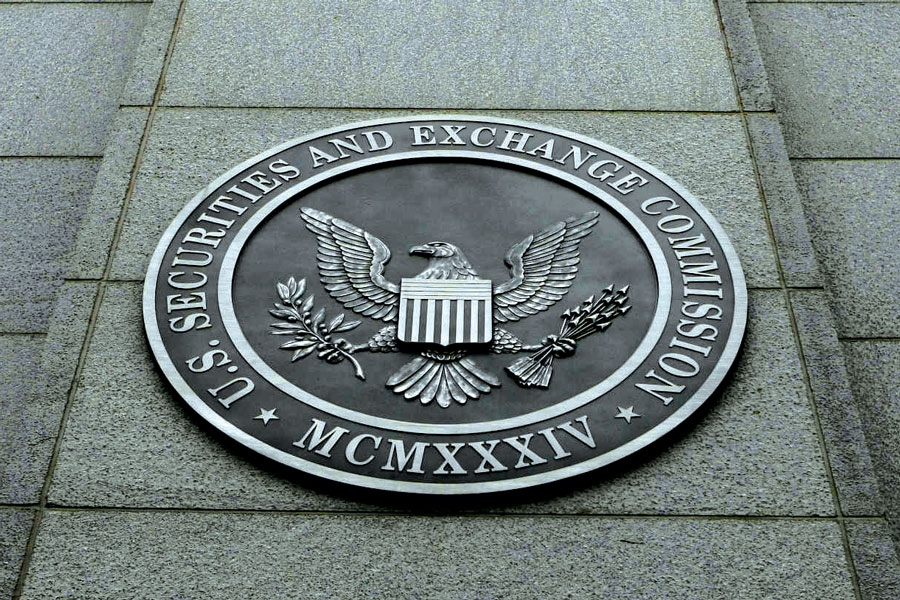SEC Rethinks Crypto Custody Rule Amid Industry Pushback
18.03.2025 9:00 1 min. read Alexander Stefanov
The SEC is reconsidering a proposed rule that would impose stricter requirements on how investment advisors handle cryptocurrency custody.
Initially introduced in early 2023, the rule aimed to ensure digital assets were stored with qualified custodians meeting specific legal standards. However, strong industry opposition has led the agency to revisit its approach.
Speaking at a financial conference in San Diego, Acting SEC Chairman Mark Uyeda acknowledged concerns from industry participants, suggesting that the original plan might be difficult to implement. He has directed SEC staff to collaborate with the crypto task force to explore alternative solutions.
The rule, first introduced during Gary Gensler’s tenure, was designed to expand existing custody regulations to cover crypto. Critics, however, argue that the proposal would limit banking options for crypto firms and make custody services harder to access.
Under current SEC guidelines, investment advisors must store assets with regulated financial institutions such as banks or brokerage firms. Extending this requirement to crypto has sparked backlash from lawmakers, financial organizations, and the digital asset industry, with groups like the American Bankers Association warning of potential disruptions.
With mounting pressure from Congress and industry leaders, the SEC is now reassessing its stance, indicating that changes to the rule may be on the way.
-
1
Worldcoin Expands to UK With Eye-Scanning ID and Crypto Rewards
10.06.2025 13:00 2 min. read -
2
SBI Group Bets Big on Circle with $50 Million Investment
10.06.2025 20:00 1 min. read -
3
JPMorgan Lays Groundwork for Tokenized Finance with New Blockchain Trademark
17.06.2025 12:00 1 min. read -
4
Less Income, No Buybacks: UBS Revises Berkshire Hathaway Forecast
08.06.2025 12:00 1 min. read -
5
Trump Advisor Meets Bukele Amid U.S. Interest in Bitcoin Strategy
06.06.2025 9:00 1 min. read
Chinese Tech Firms Turn to Crypto for Treasury Diversification
Digital assets are gaining ground in corporate finance strategies, as more publicly traded companies embrace cryptocurrencies for treasury diversification.
Ripple Faces Legal Setback as Court Rejects Bid to Ease Penalties
Ripple has been dealt another legal blow after a federal judge rejected its attempt to ease court-imposed restrictions and penalties stemming from its long-standing battle with the U.S. Securities and Exchange Commission (SEC).
BIS Slams Stablecoins, Calls Them Ill-Suited for Modern Monetary Systems
Stablecoins are failing where it matters most, says the Bank for International Settlements (BIS), which sharply criticized the asset class in its latest annual report.
Barclays Blocks Crypto Credit Card Payments in Latest Blow to Retail Investors
Barclays has announced it will prohibit the use of its credit cards for cryptocurrency purchases starting June 27, marking a significant shift in its stance on digital assets.
-
1
Worldcoin Expands to UK With Eye-Scanning ID and Crypto Rewards
10.06.2025 13:00 2 min. read -
2
SBI Group Bets Big on Circle with $50 Million Investment
10.06.2025 20:00 1 min. read -
3
JPMorgan Lays Groundwork for Tokenized Finance with New Blockchain Trademark
17.06.2025 12:00 1 min. read -
4
Less Income, No Buybacks: UBS Revises Berkshire Hathaway Forecast
08.06.2025 12:00 1 min. read -
5
Trump Advisor Meets Bukele Amid U.S. Interest in Bitcoin Strategy
06.06.2025 9:00 1 min. read


